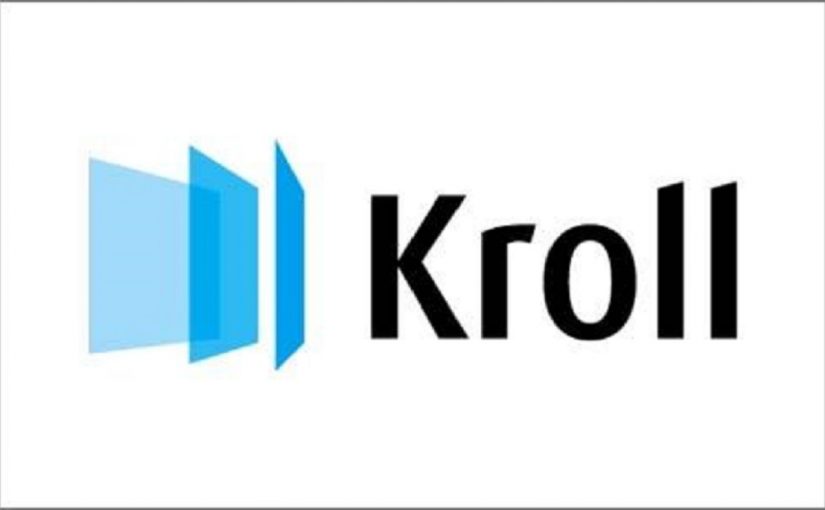Mozambique: Asphalting of Roma - Nambungali road to begin this year - Watch
Company lawyers bleat about Kroll audit – AIM report

The three Mozambican security related companies which used illicit government guarantees to borrow over two billion US dollars from the European banks Credit Suisse and VTB of Russia have written to Attorney-General Beatriz Buchili to complain bitterly about the audit of the companies undertaken by the firm Kroll Associates, according to a report from the Bloomberg agency.
The complaint comes via the companies’ lawyers, Alexandre Chivale and Associates. Chivale himself is a well-known supporter of former President Armando Guebuza. It was the Guebuza government which issued illegal guarantees for the loans, smashing the ceiling on government guarantees set in the 2013 and 2014 budget laws, and which also violated the Constitution which states that only the country’s parliament, the Assembly of the Republic, can authorise such debts.
The companies are Ematum (Mozambique Tuna Company) which took a loan of 850 million dollars, Proindicus (622 million dollars), and MAM (Mozambique Asset Management) which was lent 535 million dollars.
The letter from the lawyers, seen by Bloomberg, claimed that the loans were “public from day one”. In fact, only the Ematum loan, which took the form of a bond issue on the European market was public. The Proindicus and MAM loans were kept secret and the public only became aware of their existence in April 2016.
That was also when the International Monetary Fund (IMF) became aware of the true extent of the borrowing. The IMF then accused the Mozambican government of not disclosing the real state of its indebtedness, and suspended its programme with Mozambique. Other partners followed suit – in particular, all 14 donors that used to provide direct support to the Mozambican state budget suspended further disbursements.
A key IMF condition for resuming normal relation was an international, independent audit of Ematum, Proindicus and MAM, and the Attorney-General’s Office (PGR) hired Kroll, reputedly the foremost forensic audit company in the world.
The PGR published the executive summary of the Kroll audit in late June, but has not yet published the full audit – although it has been widely leaked and circulated on the Internet.
The lawyers dispute key Kroll findings, notably that 500 million dollars of the Ematum loan could not be accounted for. The lawyers say this money was officially moved to the defence budget, and approved by parliament (in December 2013), and so the law firm cannot understand why Kroll believes there is a discrepancy.
But the entire 850 million dollar Ematum loan was transferred to the supplier, the Lebanon based company, Privinvest, and Privinvest insists that it did not provide any military equipment.
The lawyers do not appear to have read this section of the Kroll report very carefully, for it states that Kroll could find no sign of the military equipment supposedly purchased with the 500 million dollars.
“The Ministry of Finance has not been able to confirm to Kroll any details of the maritime security equipment that was effectively included in the USD 500 million allocation, nor if the transfer of responsibility has actually been complete”, the report noted.
The security official who is he chairperson of all three companies, Antonio do Rosario, referred to in the report as “Person A”, also claimed to Kroll that the money had been used for military purposes. All he could present to back this up was “an unsigned letter”, apparently from the Defence Ministry. It was already known that Defence Minister Atanasio M’tumuke had refused to sign any such letter.
Privinvest “categorically stated to Kroll that the assets delivered to EMATUM were per the agreed supply contract and specifically that no weapons were provided”.
“Until the inconsistencies are resolved, and satisfactory documentation is provided, at least USD 500 million of expenditure of a potentially sensitive nature remains unaudited and unexplained”, Kroll remarked.
The lawyers also objected to Kroll’s independent evaluation of the assets supplied by Privinvest, and claimed that Kroll “only presents an assessment that does not include intangible assets, such as the transfer of technology and intellectual property.”
In fact, Kroll looked at the invoices and found discrepancies between what they listed and what the expert it hired believed was a reasonable price for the assets. Thus, according to the invoices, each of the 24 fishing vessels (three trawlers and 21 longliners) purchased for Ematum cost 22.3 million dollars. But the independent expert estimated that each of the boats should have cost no more than two million dollars. So each vessel cost 20.3 million dollars more than Kroll’s expert considered the true cost should have been.
Proindicus was also supplied with six Remos GX light aircraft. The price of one of these aircraft brand new is about 135,000 dollars. But additional costs are needed to make these planes suitable for maritime surveillance. Kroll’s expert puts these modifications at 600,000 dollars per plane, bringing the price up to 735,000 dollars.
But the contract with Proindicus was a turnkey contract, and so the asset price should not be considered in isolation. The price of the assets could more than double once the costs of delivering and integrating the assets (including costs for bid preparation, project planning, systems integration and project management) are considered. When Kroll’s expert added the turnkey multipliers, he estimated the total cost of the six planes at just under 10.9 million dollars. But the cost on the invoice sent to Proindicus was 47.4 million dollars, more than four times as much.
The lawyers also dispute the key Kroll claim that only limited financial data was supplied. On this issue, the full Kroll report is very clear. It states that the main challenge in completing the audit “was the lack of information available from the Mozambique companies. Kroll spent a considerable amount of time requesting and liaising with representatives of the Mozambique companies to obtain information and documentation that was, in some case, either ultimately incomplete or not provided at all”.
Key to this obstruction was Rosario. Kroll said it repeatedly asked him for “outstanding information that would provide a better understanding of expenditure: the response was that the requested information was ‘classified’ and not available”.
Privinvest was selected as the contractor without any tender, and so Kroll asked Rosario if any due diligence had been done before hiring Privinvest, but it ran into a complete refusal to cooperate. “Despite repeated requests, Person A has refused to provide any information relating to other suppliers that were considered or what due diligence was undertaken on the contractor. Person A has maintained that this information is maintained by SISE and cannot be provided, citing ‘national security’ reasons”.
The upshot is that the audit is incomplete – and the IMF has warned repeatedly that normal relation cannot resume until the missing information is provided.












Leave a Reply
Be the First to Comment!
You must be logged in to post a comment.
You must be logged in to post a comment.